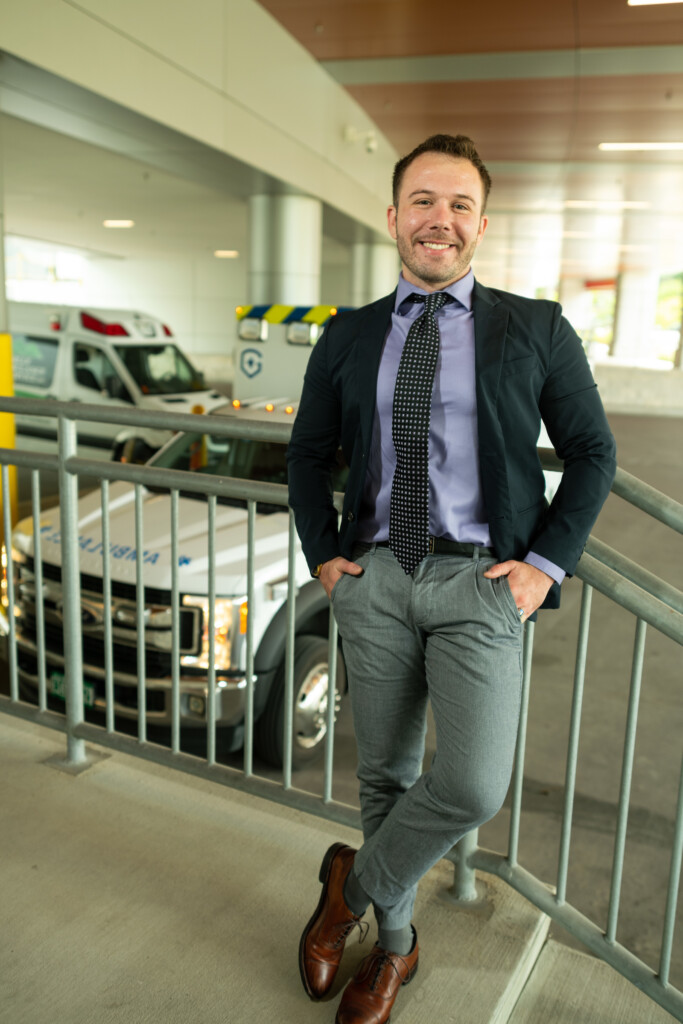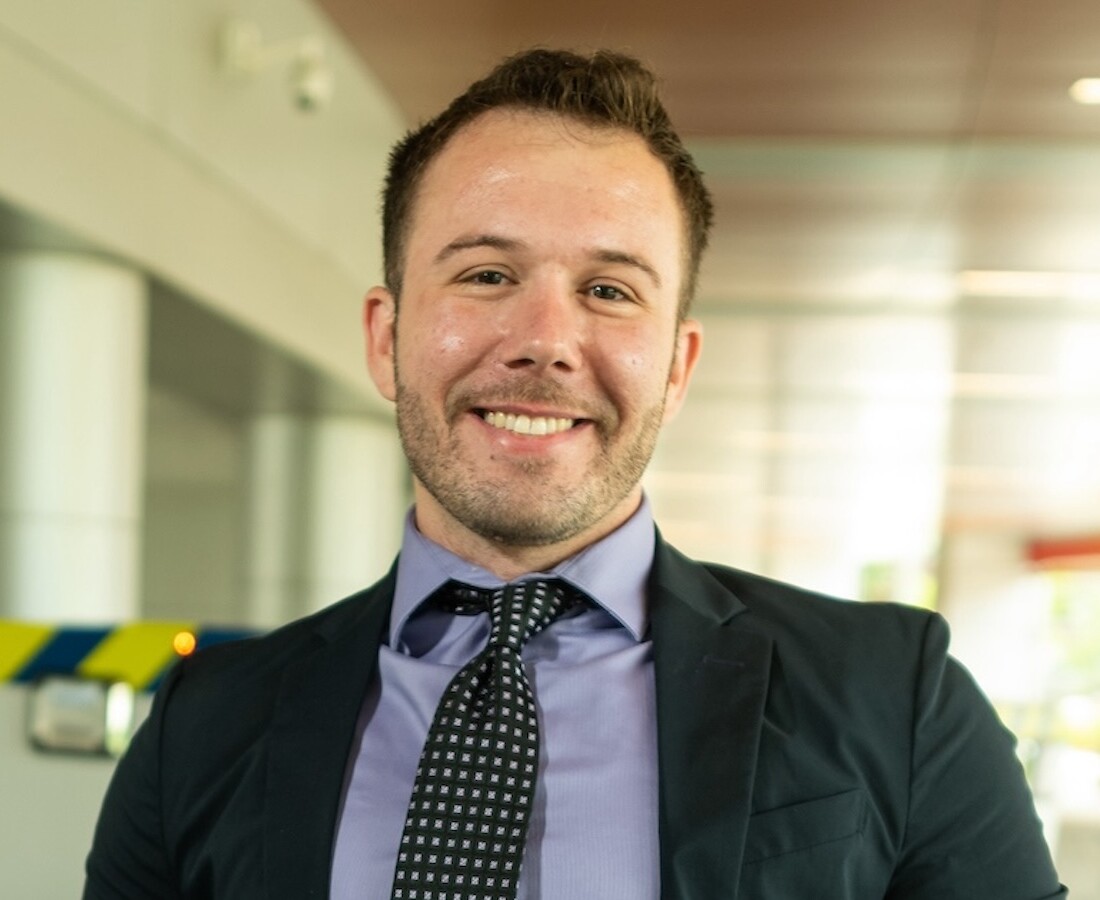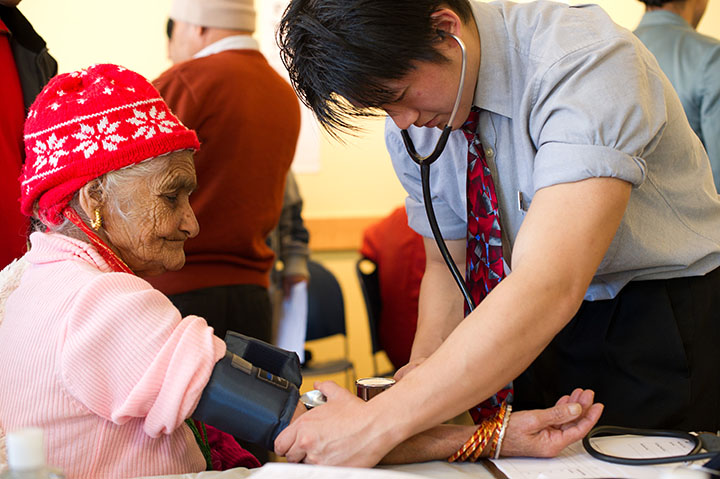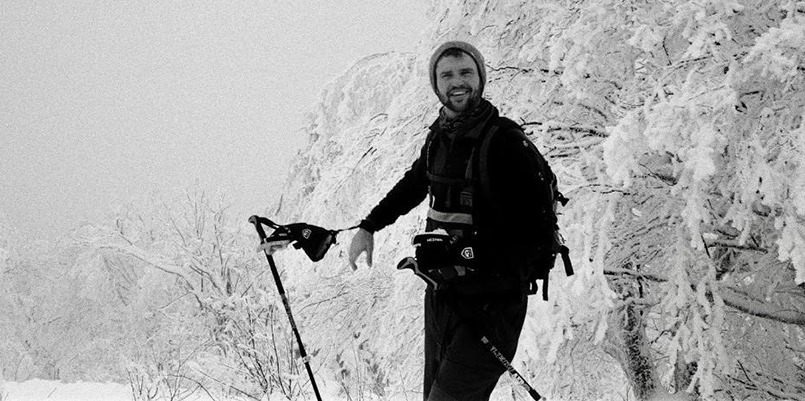Long COVID Patient Pushes for Solutions on Chronic Issues and Changing the Standards of Emergency Healthcare
Zach Martin isn’t a stranger to adapting to unexpected and painful change.
In 2020, his competitive body-building career ended when he ruptured his quad tendon.
Not long after, he lost the ability to speak and write and struggled with severe migraines – a consequence of being one of the millions of people grappling with long COVID.
Yet, Martin persevered. He learned to walk again after healing his tendon. Though there are no FDA-approved treatments for long COVID, he pushed to find experimental treatments and is now experiencing a reprieve from his symptoms. Though he says, it was an uphill battle.
“With long COVID, there was this framework of liability where my physicians were like, ‘I think this could work, but I can’t do it for you,’ and that is so frustrating as a patient because I was dealing with these issues that were acute enough to present to the emergency department two to three times a month, but there was nothing they could do for me,” Martin said.
His ability to move through uncomfortable change is driving him to push for systemic change in the healthcare system.
“In the current climate that we are in – seeing COVID happen, we realized that the healthcare system is not sustainable in its current form,” Martin said, “There’s this push for change where a lot of people who were very set in their ways are focused on moving forward with new research and new practices to find something that can work for people both on the provider and the patient side.”
Post-Baccalaureate Pre-Medical Program Helps Chart a Path Forward

In December of 2023, Martin, a philosophy major, completed the Post-Baccalaureate Pre-Medical program at the University of Vermont to earn the required credits needed to gain admission to medical school. His post-bacc program experience helped him realize he wanted to go beyond being a doctor.
“It set me up to be prepared for a future career of making the mistake of being a doctor and a lawyer,” Martin joked of his choice to pursue a rigorous JD/MD program that combines medical training with law training, resulting in a Juris doctor and medical doctor degree. “It wasn’t just enabling me to have the opportunities, but it was also training me to be prepared for the ardor of a future career in both of these fields and feeling confident and capable moving forward into doing that.”
Martin also worked in the E.R. at UVM Medical Center during his Post-Baccalaureate Pre-Medical program and became a teaching assistant, validating his choice.
“I’m watching students learn and grow and dealing with these ethical issues as they decide what kind of healthcare provider they want to be,” Martin said, “Contributing to students in this discovery process helped me refine what I wanted to do. I enjoy being hands-on with patients; at the same time, I recognize larger problems outside the acute interventions that desperately need to be addressed,” Martin said.
One of those problems, Martin says, is the increasing number of people who show up at the emergency department with chronic issues, like he once did with long COVID.
“There is no feasible clinical pathway for these patients, and it’s not just long COVID – there are so many patients like me, and I see them in the emergency department all the time,” Martin said.
This motivated Martin to get involved with a student-led research group that received grant funds from UVM’s Osher Center for Integrative Health to study how to reduce return visits to the emergency department.
“For emergency medicine physicians specifically to look and see if we can change referral behavior to acupuncture for people who are chronically presenting to the emergency department on a consistent basis for really hard-to-treat conditions,” Martin said.
Community Connections Lead to a More Meaningful Post-Bacc Pre-Med Experience
Martin met the principal investigator for the study because they both competed in the sport of dragon boat racing in Burlington – a hobby he picked up through the UVM Post-Baccalaureate Pre-Medical program resources about how to get involved in the community.
“I see a lot of students in the program taking classes and grinding away to get ready for med school, but that is like baseline,” Martin said. “Take advantage of the opportunities the program provides…and if you like to hike, bike, ski, and build relationships in your community but maybe get a 3.6 instead of 4.0 GPA, it’s also a good fit. You can get the type of experience you want and need to have to grow as an individual.”
Martin, who is 29, says after he completes the 6-year JD/MD program, he’s looking forward to doing a residency and working a handful of shifts each week to keep his skills sharp as a physician while staying in touch with issues on the ground. He hopes to spend the rest of his time working to change the standards of healthcare.
“We need more people to do this, and nobody does this because it’s seven to eleven years of pain and suffering to get this done, and yet on the other side, there is so much good to be had and so much good to contribute,” Martin said. “I feel so much more confident in going out on a limb and saying the uncomfortable things, and that’s a big deal because that’s a catalyst for change, and I learned that here.”




